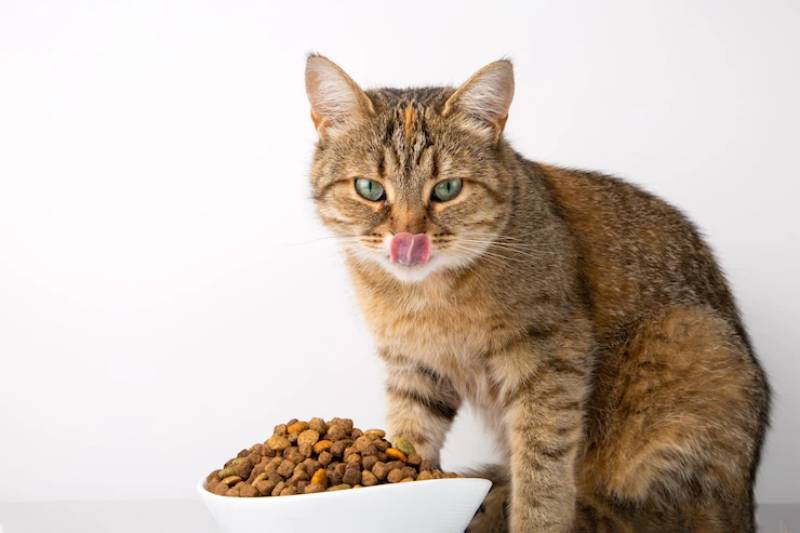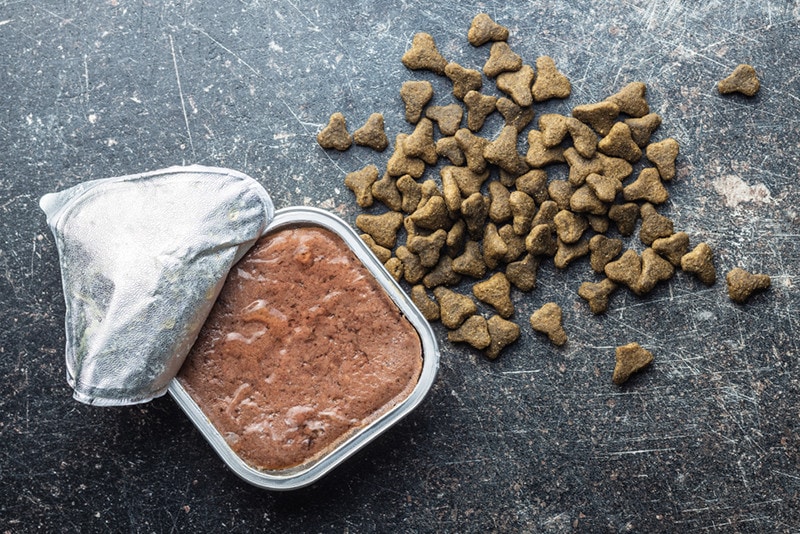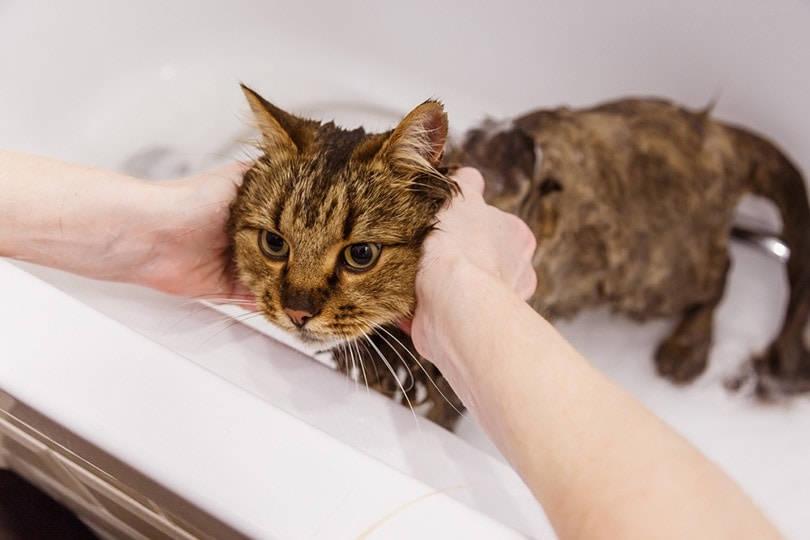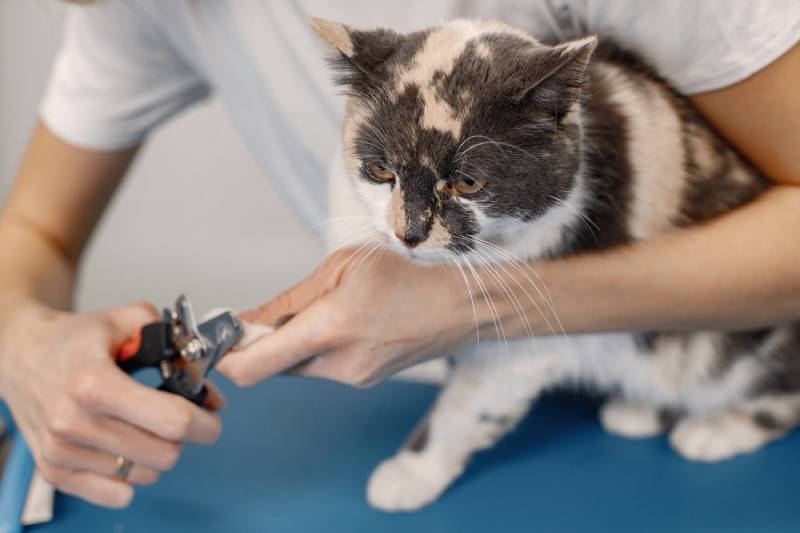Is Kibble Bad for Cats? Vet Reviewed Facts & FAQs
Updated on

Knowing what to feed our fur babies can sometimes get confusing, especially when it comes to cats. As cat owners, we want to ensure our feline kiddos are healthy and eating a complete and balanced diet, but do cats get all the necessary nutritional requirements with dry kibble? Is kibble bad for cats?
Much debate ensues on this question, and the answer is not clear-cut. However, kibble is typically high in carbs and could result in obesity. In other words, yes, certain kibble can be bad for cats if overfed, but for most cats, high-quality kibble is fine and certainly not bad for them. The nutritional content of cat food is much more important than whether it’s wet or dry.
Given that the answer is not a simple yes or no, let’s explore this topic further to better grasp what to feed your kitty for optimal health.
Should Cats Eat Dry Kibble or Wet Food?
Cats can eat dry kibble as long as the kibble is complete and balanced. The kibble should be low in carbs, and the animal fats and proteins should come from quality meat rather than vegetables. Cats are obligate carnivores and require a low-carb diet to keep obesity away, as well as other health issues, such as cancer and feline lower urinary tract disease (FLUTD).1
Both dry kibble and wet food have benefits and drawbacks, and what to feed your particular kitty depends on a few factors. For starters, wet food has a much higher moisture content, which is beneficial if your cat doesn’t drink much water throughout the day. A drawback is wet cat food is generally more expensive than dry kibble. Some cat parents mix dry kibble with wet food to cut down on the expense, which is fine as long as your cat is getting the required nutrients from the mixture.
It is fine to feed your cat solely wet food as long as the food is complete and balanced and contains all necessary vitamins and minerals. It’s also important not to overfeed your cat during mealtimes to prevent obesity.

What Are the Benefits of Dry Kibble?
Dry kibble is less expensive than wet canned food and so is more budget-friendly. Dry food also does not require refrigeration after being opened and can be stored for a longer amount of time. Dry kibble works well for automatic feeders and for those who free-feed their cats. If you leave food out for your cat throughout the day, discard any uneaten portions after a few hours.
Should I Feed My Cat Wet Food or Dry Kibble?
When all is said and done, you should feed your cat according to its unique needs. For example, cats that are obese will benefit from a low-fat diet. Kittens or cats of normal weight and health will do well on a maintenance diet. Cats that don’t typically drink much water will do well on wet foods with the added moisture, but most cats can eat kibble occasionally or even every day.
It’s best to consult your veterinarian before committing to any cat food to ensure the food is acceptable for your particular kitty.
Tips for Keeping Your Cat Safe, Healthy, and Happy
When browsing cat food, it’s vital to know how to read the product label. Since cats require cat food high in animal fat and protein, the first ingredient listed should be a protein from a quality source, such as chicken, beef, turkey, lamb, or fish. The ingredients that follow will be listed in descending order according to how much of the source is in the food, from most to least. For example, if water is listed before rice, that means the product has more water than rice.
Your veterinarian is an excellent source to utilize when it comes to selecting an appropriate cat food. Your vet can determine the best diet according to your cat’s health for maximum nutrition that caters to your specific cat’s nutritional needs. Some cats may benefit from a mixture of dry kibble and wet cat food, and some can do well solely on wet food. Others may benefit from dry kibble exclusively. Your veterinarian can help you determine the best course of action.
Ensure you keep plenty of toys around for your kitty’s physical and mental stimulation, and take your kitty for yearly checkups. Ensure all window screens are safe and secure so your cat cannot fall out, and shower your kitty with love each day.
Conclusion
Deciding on a cat food can be overwhelming, but if your kitty loves wet food and it’s within your budget, your cat should do fine on wet food. It’s also fine to mix dry kibble with wet food to help ease expenses, and it’s ok to feed dry kibble exclusively as long as the dry kibble is low in carbs and is complete and balanced.
Consult your veterinarian about what to feed your particular cat, especially if your cat is obese or has any other medical issues.
Featured Image Credit: serg60, Freepik












